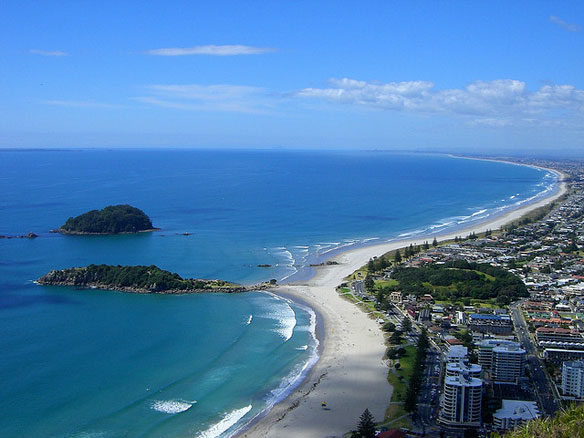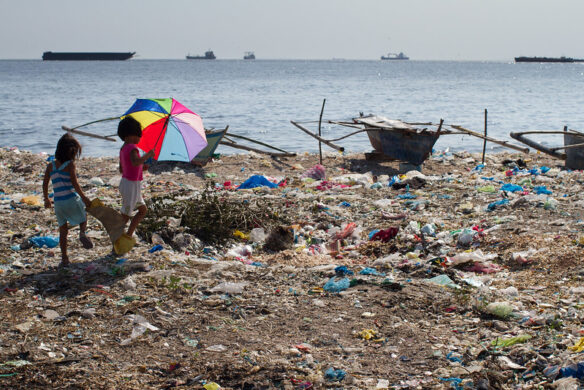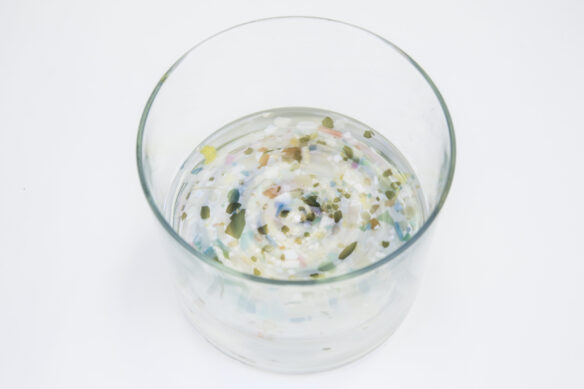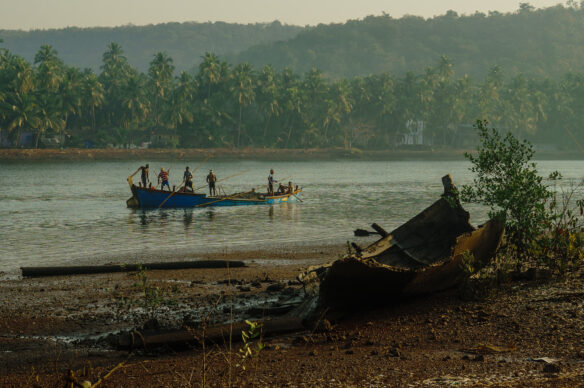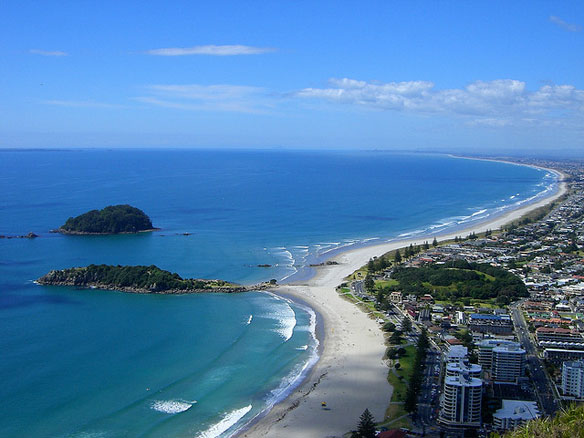
View over pristine Tauranga beach, New Zealand. Photo source: ©© Freimut
Excerpts; By BBC
An oil spill from a stranded cargo ship off New Zealand is the country’s worst environmental disaster in decades, the government says.
Fears that New Zealand could face a large-scale environmental crisis have escalated as the oil leaking from the container ship Rena into the sea off the Tauranga coast increased by as much as ten-fold. Officials say 350 tonnes of oil may have leaked from the 775ft (236m) Rena, which ran aground on the Astrolabe Reef off the port of Tauranga on Wednesday.
Bad weather has halted work to pump oil off the ship.
Environment Minister Nick Smith said the situation was going to get “significantly worse” in coming days…
New Zealand Oil Slick Reaches Shores, RTE News
A 6km stretch of coastline has so far been contaminated with a tar-like toxic ooze, which smelled strongly of petrol. Officials are closing affected beaches and warn people to avoid the oil.
Rena Oil Spill On NZ Beaches “Inevitable”
Oil Washes Ashore On Popular New Zealand Beaches, AP
NZ oil spill may hurt marine ecosystems, experts say: PhysOrg
By Sunanda Creagh, Physorg
Experts have warned of damage to marine ecosystems after the cargo ship Rena struck a New Zealand reef and leaked around 50 tons of oil into the Bay of Plenty.
New Zealand maritime authorities said on Monday that “fist-sized patties” of oil have washed up on New Zealand beaches following the spill.
“A public health warning has been issued. No shellfish or fin fish should be eaten from waters with visible oil contamination,” a statement posted on the Maritime New Zealand website said.
Nine birds, including seven little blue penguins and two shags, had been rescued by wildlife response teams and reports of oil-slicked seals are being investigated, the statement said.
Professor Ravi Naidu, Managing director of the Co-operative Research Center For Contamination Assessment And Remediation of The Environment, in South Australia, said the oil will not disappear quickly.
“This spill could impact on the sensitive aquatic environment and life cycle of the marine ecosystem,” he said.
“There are volatile hydrocarbons in the oil which will disperse but the oil which is not removed will continue to have an effect. There will be some natural remediation by microbes in the coastal environment, but it may be found that these are not as active as they are in warmer tropical waters.”
Marine ecologist Associate Professor Mark Costello, at Auckland University’s Leigh Marine Laboratory, said that some microbes may be able to break down oil depending on the type of oil and environmental factors.
“Dispersants, like a lot of detergents, will kill animals and plants as well. Some of the new ones may be safer, but I don’t know how safe they are,” he said.
“You do get natural oil and gas leaks in various parts of the world. The marine microbes which break down oil slicks seem to be pretty cosmopolitan and they break down lumps of oil in other places.”
“I know people have sprayed nutrients such as nitrogen on beaches to try and speed up the growth of bacteria that would help degrade the oil — but as far as I know this has been experimental and it’s not yet clear whether it has any effect in degrading the oil faster. The nutrients could have their own knock-on effect”.

